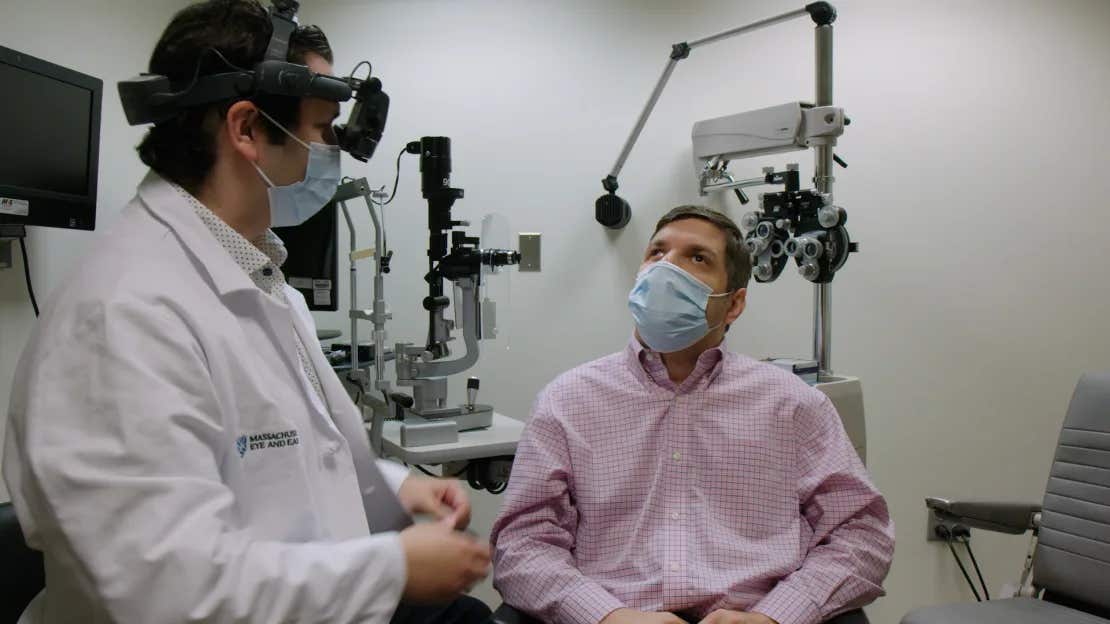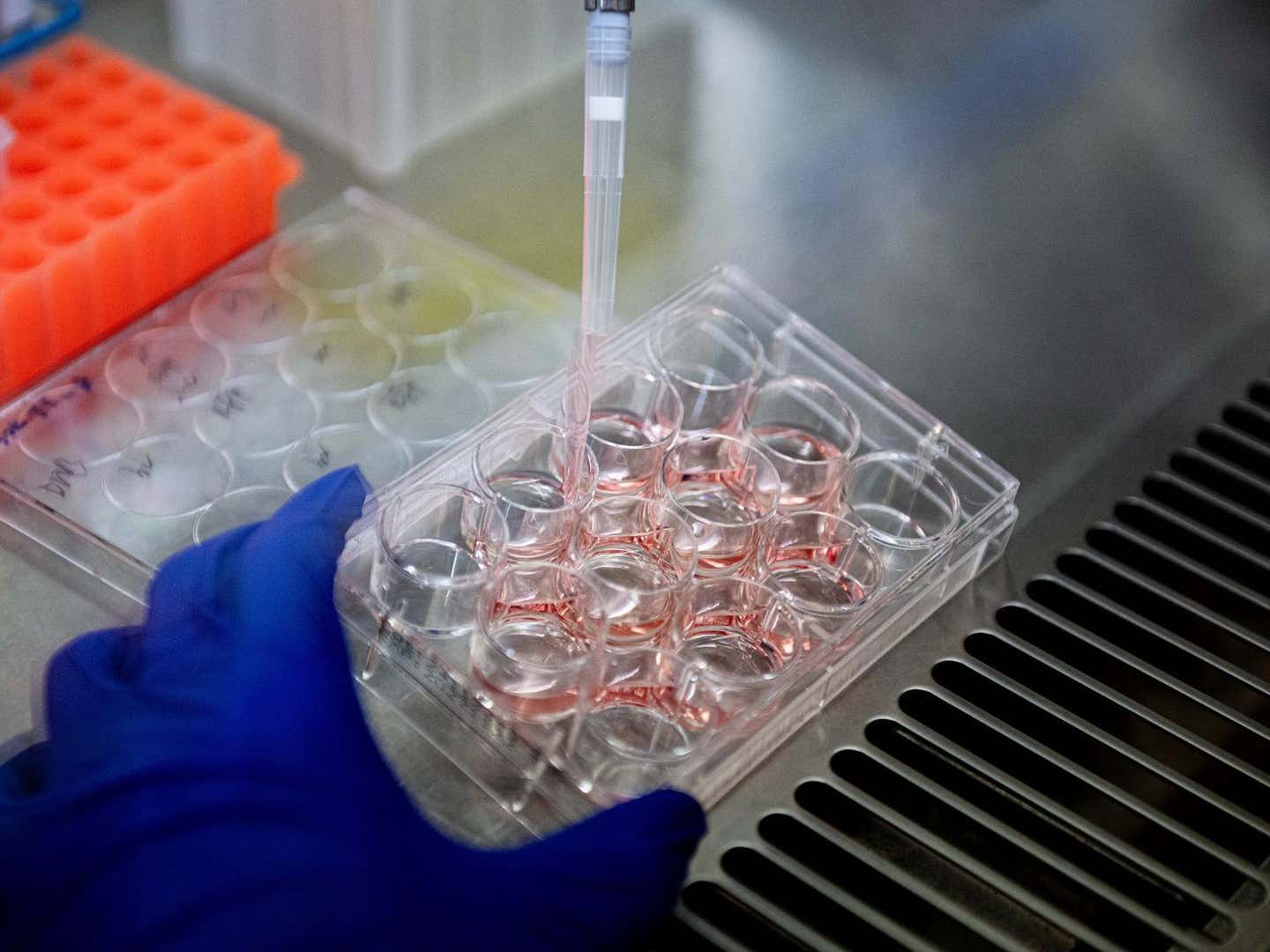Life-changing clinical trial yields significant vision improvement for blind patients
In a clinical trial, 79% of participants exhibited significant improvements after receiving an experimental CRISPR-based gene therapy

In a groundbreaking clinical trial, 79% of participants exhibited significant improvements after receiving an experimental CRISPR-based gene therapy designed to correct a rare genetic form of blindness, detailed in a study published in the New England Journal of Medicine.
The trial, known as BRILLIANCE, targeted a mutation in the CEP290 gene associated with Leber Congenital Amaurosis (LCA) Type 10, a rare degenerative retinal condition.
There are currently no FDA-approved treatments for this disorder, which affects approximately 2 to 3 in every 100,000 newborns. The study marks a pivotal moment in medical research, representing the first use of in vivo CRISPR gene editing—modifying genes within the human body.
Dr. Mark Pennesi, an ophthalmologist at Oregon Health & Science University (OHSU) and a lead scientist in the trial, expressed the profound impact of these medical advancements. "There is nothing more rewarding to a physician than hearing a patient describe how their vision has improved after a treatment," said Pennesi.
He shared anecdotes from trial participants, including one who was able to locate their phone and visually confirm their coffee machine's operation through its indicator lights—simple tasks that significantly enhance the daily lives of those with severe visual impairments.
Developed by Editas Medicine, the treatment, EDIT-101, employs CRISPR technology to specifically edit the defective gene directly within the eye. The OHSU Casey Eye Institute initiated the trial by treating its first participant in early 2020, setting a historic precedent for gene therapy.
Related Stories
The clinical trial results
"The subjects receive an injection of the gene-editing drug, EDIT-101, underneath their retina," explained Dr. Pierce. "This drug encodes the CRISPR-Cas9 gene-editing machinery. Once it starts working inside the retinal cells, it cuts out the mutation in CEP290 from the genome, allowing the function of the CEP290 gene to be restored."
The trial, enrolled 14 participants: 12 adults (ages 17 to 63) and two children (ages 9 and 14). All suffered from inherited retinal degeneration caused by mutations in the CEP290 gene. This gene provides instructions for creating a protein essential for various cells, including light receptor cells in the eyes. Mutations in CEP290 are the leading cause of severe early-onset retinal degeneration, leading to vision loss in children.
The published results cover data up to February 2023 and involved 14 participants—12 adults and two children. The outcomes were promising:
11 participants (79%) experienced improvement in at least one of four measured outcomes.
6 participants (43%) saw enhancements in two or more outcomes.
4 participants (29%) achieved clinically meaningful gains in visual acuity, such as better identification of objects or letters on a vision chart.
Importantly, no serious adverse events were reported, and all mild to moderate side effects were resolved.
The effectiveness of EDIT-101 was evaluated based on various criteria, including visual acuity tests, full-field tests to assess perception of colored lights, navigational ability in a research maze, and self-reported improvements in quality of life.
Olivia Cook's experience
Olivia Cook, a college student, described her lifelong experience with limited vision: "For my entire life, I had only a small degree of central vision. It was as if I was watching the world through a straw hole, and in dimly lit places, I could not make out people's faces, only their silhouettes."
However, things have changed dramatically for Cook. "But after receiving an experimental gene-editing treatment to one of my eyes, she now can see things she never saw before," according to reports.
Cook was born with Leber congenital amaurosis (LCA), a rare inherited retinal disorder that causes blindness. A few years ago, she bravely decided to participate in a clinical trial that utilized the CRISPR gene-editing tool to potentially correct her specific form of blindness.
"My life has mostly changed in terms of being hopeful that there is going to be more science and findings in the future," said the 22-year-old Cook, currently enrolled in marketing and product development at Missouri State University in Springfield. The experimental treatment involved surgery on her left eye.
Sharing her experience post-surgery, Cook said, "Now, post-surgery and post recovery, I am able to see in dimmer lighting with my left eye."
“You wouldn’t really know that my eyesight is terrible until you spend a significant amount of time with me,” Cook said. “If we saw each other in the street, if I introduced myself to you, you’d never know.”
Next steps and future studies
Despite the promising early results, Editas Medicine paused new enrollment in November 2022 to seek additional partners to further the therapy's development. Dr. Pennesi and his team are exploring collaborations for future studies to refine dosage, assess age-related efficacy, and better measure impacts on daily activities.
Dr. Eric Pierce, an ophthalmologist at Mass Eye & Ear and also a corresponding author on the paper, remains optimistic about the future of CRISPR gene therapy for retinal diseases. "To hear from several participants how thrilled they were that they could finally see the food on their plates—that is a big deal," Pierce remarked. These participants, who previously could not discern any lines on an eye chart, represent a significant demographic with few existing treatment options.
Dr. Tomas S. Aleman from the Children's Hospital of Philadelphia and the University of Pennsylvania's Scheie Eye Institute, another key author, highlighted the specific impact on pediatric patients. "Our patients are the first congenitally blind children to be treated with gene editing, which significantly improved their daytime vision," Aleman stated.
The hope is that this research will lead to effective treatments for younger children with similar genetic conditions and continue to enhance visual outcomes.
The trial's results offer a "proof of concept" and valuable insights into the development of new therapies for inherited retinal diseases, according to Dr. Baisong Mei, Chief Medical Officer at Editas Medicine. "We’ve demonstrated that we can safely deliver a CRISPR-based gene editing therapeutic to the retina and have clinically meaningful outcomes," Mei concluded.
As this research progresses, it not only represents a leap forward in treating genetic blindness but also illustrates the broader potential of gene editing technologies to address complex medical challenges.
For more science news stories check out our New Innovations section at The Brighter Side of News.
Note: Materials provided above by The Brighter Side of News. Content may be edited for style and length.
Like these kind of feel good stories? Get the Brighter Side of News' newsletter.



